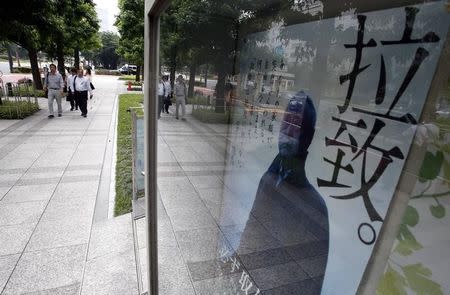U.N. expert wants North Korea to answer for decades of abductions

By Stephanie Nebehay GENEVA (Reuters) - A United Nations human rights investigator recommended an international strategy on Monday to press North Korea to clarify the fate of hundreds of foreign nationals allegedly abducted over decades, mainly from Japan and South Korea. Marzuki Darusman, an independent expert, laid out the strategy in a report to the U.N. Human Rights Council saying that the International Criminal Court (ICC) in the Hague was "competent for prosecuting these perpetrators". "The strategy aims at eventually shedding light on all cases of abductions and enforced disappearances allegedly committed by agents from the Democratic People's Republic of Korea," Darusman, Indonesia's former attorney-general, said on Monday. "Achieving closure and accountability for the abductions ... is the ultimate goal of this strategy," he said in the 19-page report, due for debate next week at the 47-member state forum. A U.N. commission of inquiry, in a major report a year ago, found that since 1950 North Korea had engaged in the "systematic abduction" of foreign nationals "on a large scale and as a matter of state policy". Darusman was part of the investigation that called these and other abuses crimes against humanity. In the report presented on Monday, he said that agents from North Korea had abducted "hundreds of nationals from South Korea, Japan and other countries between the 1960s and 1980s". Since the 1990s, North Korea is believed to have abducted several people from China, including nationals of China, South Korea and a former Japanese national, Darusman said. Japan's national police agency is looking into 881 possible abduction cases blamed on North Korea over the years, he said. "In addition to victims from Japan and the Republic of Korea, the Commission of Inquiry recorded cases of abductions and enforced disappearances of nationals of Lebanon, Malaysia, Romania, Singapore, and Thailand, and possibly others," he said.North Korean Foreign Minister Ri Su Yong, addressing the Geneva forum last week, again rejected the findings of last year's U.N. inquiry as being "politically motivated" and "based on lies" by a few defectors whom he called criminals. (Editing by Louise Ireland)

